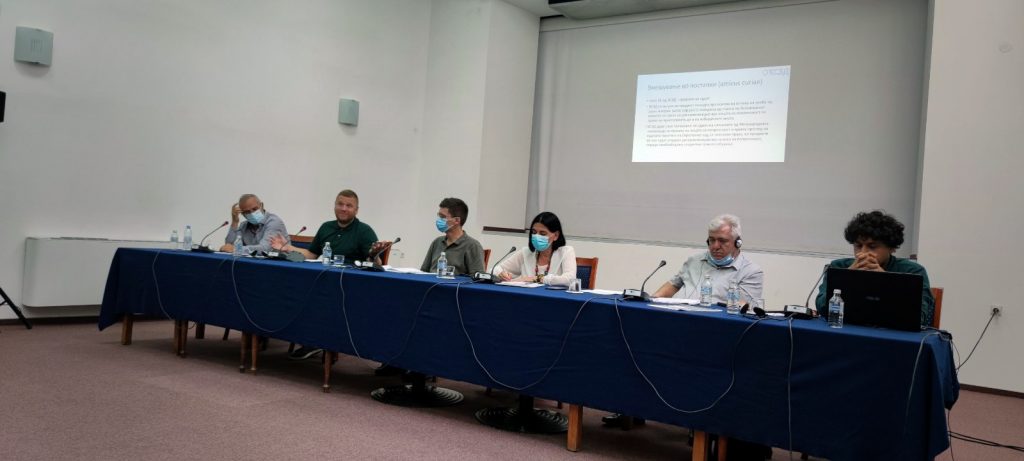
In the first five months, the newly established Commission for Prevention and Protection Against Discrimination has handled 90 complaints. Of these, 78 were taken from the complaints submitted to the former Commission for Protection against Discrimination, while the remaining 12 were submitted to the Commission established under the new law.
The Commission was established with the adoption of the Law on Prevention and Protection against Discrimination on October 27, 2020. With this law, the commission has 26 exhaustively enumerated competencies. The seat of the Commission is on Dame Gruev no. 1, but despite the allocated premises, at the moment, the CPD is facing a lack of technical capacity for its smooth operation. The premises lack furniture (desks, chairs, conference table, closets for storing documents, etc.), technical equipment (computers, server, etc.) and office equipment.
The commission has six members, after one member resigned immediately after the election due to personal reasons, and the public announcement for the election of the seventh member is underway. The election of this seventh member of the Commission will contribute to the smooth operation of the Commission and increase its functionality and efficiency. In addition to the elected members, the Commission also employs two civil servants, authorized by the Ministry of Labor and Social Policy.
To create sustainable solutions, recommendations and conclusions, the CPDD created parameters that are the basis for further analysis of cases. Of the total number of cases reviewed, 25.5 percent were filed by women, 35.5 percent by men, 32.2 percent were filed by legal entities, while 6.8 percent were filed by a group of citizens. By analysing the place of residence of the applicants, it can be seen that about 45% live in Skopje, while the rest are from other cities in the country.
The analysis of the reported basis of discrimination cannot be conducted, because in most of the complaints the applicants did not report the basis on which they were discriminated, while from the content of the complaint it was not possible to determine it. The Commission plans to overcome this challenge by creating a template that will then be entered into a database. The database will process all relevant parameters for analysing the discrimination situation in the country.
For over 40% of the complaints, the commission sent a letter to the potential discriminator, about 22% of the complaints were rejected due to incompetence, 5.5% were rejected because of incomplete documentation, while other complaints are still being processed. The new Law on Prevention and Protection against Discrimination opens the possibility for the CPPD to submit a request to the court to act as a friend of the court (amicus curiae) at the request of the party or on its own initiative. This opportunity was used in March 2021, when the Helsinki Committee for Human Rights submitted a request to the CPPD for involvement in court proceedings in a case related to systemic discrimination against persons with disabilities in terms of access to and at polling stations.
In April 2021, the CPPD issued its first expert opinion on the proposal for introduction of the category of ethnicity in the ID cards, contained in the draft-law on amendments to the Law on ID cards.
Since determining the composition of the CPPD and its members, a total of 17 sessions have been held, and at the constitutive session on February 3, 2021, the member Vesna Bendevska was elected in the position of President of the Commission. At the same session, the Commission decided to register itself in the Central Registry, as a new legal entity in accordance with the Law on Prevention and Protection against Discrimination passed on October 27, 2020.
In the first months of its work, the Commission signed memorandums of cooperation with the OSCE Mission to Skopje, the Network for Protection Against Discrimination, as well as the Embassy of the United Kingdom. These memoranda will improve the work of the commission and will help implementing activities of common interest.
The first months of the new Commission for Prevention and Protection against Discrimination were marked by bureaucratic obstacles, but the Commission still managed to fulfil all of its legal responsibilities and act within its legal competences determined by the new law. With the acquisition of permanent offices and the completion of the expert service, the Commission expects a significant increase in the indicators in the second quarterly report.
